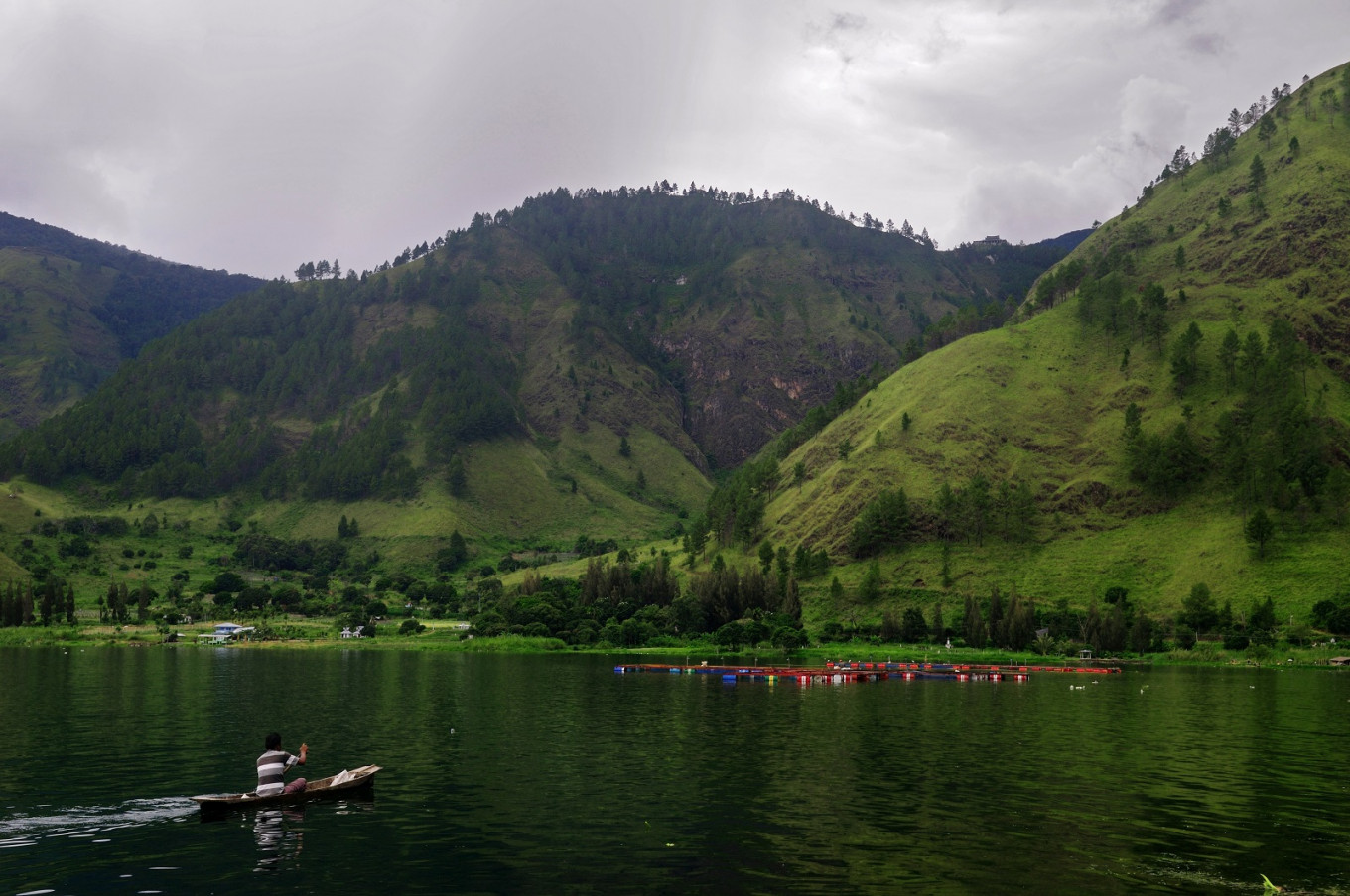Popular Reads
Top Results
Can't find what you're looking for?
View all search resultsPopular Reads
Top Results
Can't find what you're looking for?
View all search resultsPeppa Pig selfies: Distrust hurdle to halal tourism
More than the issue of halal or haram, the expressed concerns are about a much more fundamental problem: the increasing distrust among our fellow Indonesian citizens.
Change text size
Gift Premium Articles
to Anyone
N
orth Sumatra Governor Edy Rahmayadi recently said he would boost halal tourism in the predominantly Christian regencies around the famed Lake Toba, sparking anger among non-Muslims inside and outside the province.
For them, enough is enough. They don’t care that the governor, a Muslim, is actually seeking to bring more visitors and create more revenue for locals. Local media report that they strongly suspect Edy has a hidden agenda, namely the “Islamization” of the predominantly Christian regencies as non-Muslims have long felt restrictions on their faith despite constitutional guarantees. More often, it is Muslims who are wary of the perceived “Christianization” of Muslims, who generally have less economic clout.
So, have both sides become paranoid? The answer is a combination of “yes” and “no”.
One regent has openly challenged Edy, a retired three-star general. Rapidin Simbolon, the regent of Samosir Island in the middle of Lake Toba, stated he would defy the governor’s “halal and sharia” plan. He claimed Edy’s plan contravened the state ideology Pancasila, the 1945 Constitution and the national slogan Bhinneka Tunggal Ika (Unity in Diversity).
The plan “is not in line with the customs of the Samosir community. Samosir is for Indonesia and the world. But we must preserve our own culture. Slaughtering pigs is part of our culture,” said the Catholic regent.
Next month a group of ethnic Batak activists will launch a two-day Lake Toba Pork Festival in Muara, North Tapanuli regency. Togu Simorangkir, one of the initiators, has said people are invited to participate in activities such as competitions to catch pigs, to guess pigs’ weight, to clean pig stalls and also to have selfies with pigs. There will be a prize for the best pork steak, as well as stand-up comedy and a music festival.
Simorangkir acknowledged the festival was a form of protest against Edy’s “halal tourism” plan
“When guests come to my house, I do not force them to eat pork. But it also does not mean I won’t eat pork just because my guest doesn’t. There should be mutual tolerance,” said Simorangkir.
Among globally popular television programs for infants is Peppa Pig, which is about the snorting Peppa, a humanlike female pig, her family and friends from different species of animals.
Now the pig has become the chosen icon in a number of areas to demonstrate the resentment and resistance of non-Muslim Indonesians against what they perceive as, to borrow from protesters of the last presidential election result, “structured, systematic and massive” attempts by Muslims to enforce their mission to establish halal-based tourism in Indonesia.
For many non-Muslims in North Sumatra, where their numbers are quite significant, the halal issue is much more serious than just about halal and haram matters like pork consumption. They suspect the real agenda behind the halal campaign is to boost “Islamization” in their areas.
Government plans to boost halal tourism have also sparked resistance in the provinces of Bali and East Nusa Tenggara (NTT), which also have substantial non-Muslim populations.
NTT strongly opposed the idea of Labuan Bajo Tourism Development Authority chief Shana Fatina to boost halal tourism to attract more visitors to the famous spot.
“There is no halal tourism in NTT; if we have halal tourism, it means other types are haram,” said Governor Viktor Laiskodat.
President Joko “Jokowi” Widodo himself said such a plan for Labuan Bajo could provoke social conflict.
“If the community doesn’t want it, stop it. It’s that easy,” Jokowi said during his visit to the province in July.
People in Papua and West Papua are also reportedly annoyed with the pig-related issue. The animal plays a central role in the lives of many tribes in the two provinces, just like among the Christian Batak people.
One of the presidential election candidates earlier raised the necessity of developing halal tourism in Bali. Governor I Wayan Koster opposed the idea. “I think Bali owns its own branding, which is in line with local Balinese wisdom, a cultural-based tourism [...] I don’t think there is a necessity to have [halal tourism]. Because so far even without the halal label there have been no problems, we all know that,” he said.
A non-Muslim lecturer recently said, “Our freedom to practice our religion is systematically restricted. We have no choice but to adapt ourselves as the minority. But now they want to restrict us in our homes.”
The central government should pay serious attention to such concerns. We should support the government’s concerted efforts to boost tourism, including luring more Muslims. But rightly or wrongly, the sentiments exist among minorities that the other side wants to grab it all and now their own homes have become a direct target.
More than the issue of halal or haram, the expressed concerns are about a much more fundamental problem: the increasing distrust among our fellow Indonesian citizens.
We should not let our nation become divided over a strategy designed to improve our tourism and the welfare of local people.











